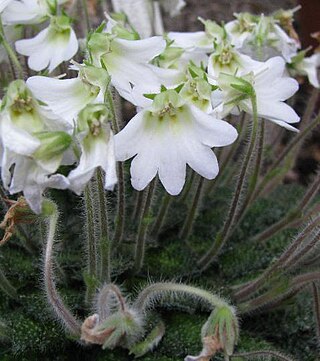
Romance of the Three Kingdoms is a Chinese television series adapted from the classical 14th century novel of the same title by Luo Guanzhong. The series was produced by China Central Television (CCTV) and was first aired on the network in 1994. It spanned a total of 84 episodes, each approximately 45 minutes long. One of the most expensive television series produced at the time, the project cost 170 million yuan. It was completed over four years and involved over 400,000 cast and crew members, including divisions of the People's Liberation Army from the Beijing, Nanjing and Chengdu military regions. Some of the dialogue spoken by characters was adapted directly from the novel. Extensive battle scenes, such as the battles of Guandu, Red Cliffs and Xiaoting, were also live-acted.

Three Kingdoms is a 2010 Chinese television series based on the events in the late Eastern Han dynasty and the Three Kingdoms period. The plot is adapted from the 14th century historical novel Romance of the Three Kingdoms and other stories about the Three Kingdoms period. Directed by Gao Xixi, the series had a budget of over 160 million RMB and took five years of pre-production work. Shooting of the series commenced in October 2008, and it was released in China in May 2010.

Petrocosmea is a genus of the family Gesneriaceae, the African violet family. Many of the species within this genus are endemic to high-elevation areas in Western China, although some are native to other parts of Asia. including north-central and southern China, Indochina, and the eastern Himalayas. It is a rosette-forming genus that generally grows on wet mossy rocks or forests.

The Han Triumph, also known as Wind Ode, is a Chinese television series based on historical events in the early Han dynasty, beginning with the founding of the dynasty by Liu Bang after his triumph over Xiang Yu, and the events leading to the reign of Liu Heng. Directed by Huang Jianzhong, the series starred Ray Lui, Wang Ji, Liu Mu, Zhang Guangbei, Chen Wei and Li Qingxiang in the leading roles. It was first broadcast on CCTV-8 in China on 17 December 2011.

Justice Bao is a Chinese TV series starring producer Jin Chao-chun as the Song dynasty official Bao Zheng. The series ran for 3 seasons from 2010 to 2012. In addition to Jin, Kenny Ho, Fan Hung-hsuan and Lung Lung again reprise their iconic roles from the 1993 Taiwanese hit Justice Pao and the 2008 Chinese series Justice Bao.

Love Legend of the Tang Dynasty, also known as Da Tang Qing Shi, is a Chinese historical television series based on the legend of an illicit romance between the Tang dynasty Princess Gaoyang and a monk called Bianji. The series was directed by Gong Ruofei, starring Tang Guoqiang, Shen Aojun, Nie Yuan, Zhang Tong, Pan Yueming, Pan Yaowu, and Qin Lan. It was first broadcast in mainland China in 2001.
The Legend of Crazy Monk is a Chinese television series about the life of Ji Gong. The series was directed by Lin Tianyi and based on Guo Xiaoting's classical novel Biography of Ji Gong. It was a hot TV series recently in Guangdong Television, Jiangsu Television and Shenzhen Television. It is shown on Mediacorp Channel 8 at 7pm.

The Seven Heroes and Five Gallants is a 1994 Taiwanese television series produced by Chinese Television System (CTS) a few months after its prequel Justice Pao, which was also produced by Chao Ta-shen. Dozens of actors appeared in both series, but only Sze Yu and Tu Man-sheng reprised their roles. Fan Hung-hsuan and Lung Lung chose to portray new characters rather than their iconic roles.
Rookies' Diary is a comedy television series created in Taiwan. It has a total of 43 episodes of approximately 1 hour each. It aired from July 2, 2010 to April 22, 2011. The series is about how a group of teenagers trains in the military for 36 days. The director of the series is Wang Wei.

Phenuiviridae is a family of negative-strand RNA viruses in the order Bunyavirales. Ruminants, camels, humans, and mosquitoes serve as natural hosts. Member genus Phlebovirus is the only genus of the family that has viruses that cause disease in humans except Dabie bandavirus.

Lion Pride is a 2017 Taiwanese television series created and produced by Eastern Television. Starring Yen Tsao, Amanda Chou, Kevin Liu and Peace Yang as the main cast. Filming began in October 2017 and ended on February 12, 2018. The first original broadcast was on TTV every Saturday at 10:00 pm starting December 2, 2017.
Paraboea are a genus of flowering plants in the African violet family Gesneriaceae, native to southern China, Assam, Indochina, and Malesia. They were recircumscribed from Boea in 2016.
Petrocodon is a genus of the family Gesneriaceae. It includes 51 species native to southern China and Indochina. Petrocodon formerly had few species, but recent genetic analysis has refined our understanding of the genus. Calcareoboea, Paralagarosolen, Dolicholoma, and Tengia monotypic genera have been transferred to Petrocodon, as well as some Didymocarpus and Lagarosolen species.

Glabrella is a genus of flowering plants belonging to the family Gesneriaceae.

Hemiboea is a genus of flowering plants belonging to the family Gesneriaceae.

Metapetrocosmea is a genus of flowering plants belonging to the family Gesneriaceae. It includes ten species native to southern China, Hainan, and Vietnam.

Oreocharis is a genus of flowering plants in the family Gesneriaceae. It includes 154 species native to Asia, which range from the Eastern Himalayas and Tibet through Indochina and China to Japan.













